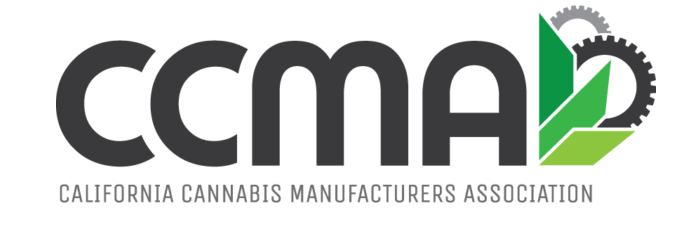CCMA Political greenBrief
Wednesday, October 3, 2018
www.cannabismanufacturers.org
Colorado Rep. Michael Bennet Wants To Make Sure The Federal Government’s Drug Policy Committee Sheds Positive Light On The Growing Cannabis Market
“In Colorado, we’ve made a deliberate effort to ensure fact-based data informs our marijuana policies. Government-sponsored propaganda shouldn’t undermine that effort.”U.S. Senator Michael Bennet (D-CO) On The Federal Government’s Cannabis Propaganda
“The concern for some of the players is the market will be dominated by Canadian companies, shareholders and banks if we allow too much time to pass. They who have capital get to soak up market share. If we don’t see something happen in 2019, almost all of us will be takeout targets for Canadian players.”Derek Peterson, CEO Of California-Based Terra Tech, On Federal Restrictions Hurting The U.S. Cannabis Industry
The Tragedy Of SB 829: California’s Lowest-Income Pot Patients Hit Hardest (CA – Cannabis Legislation)
Cannabis Now (October 1, 2018) On Sept. 30, the last day that the governor could sign or veto bills from the 2018 legislative session, California Governor Jerry Brown vetoed SB 829, a bill that would have provided tax exemptions to compassionate care programs that provide free medical cannabis to financially disadvantaged people living with serious health conditions. Brown claimed in his statement on the SB 829 veto decision that providing free cannabis to a person with only a doctor’s recommendation undermines what California voters intended when they voted in favor of Proposition 64 in November 2016. However, compassionate care programs have a long history in California. Proposition 215, which originally put medical marijuana laws on the books in California back in 1996, was titled the Compassionate Use Act. It was the start of the marijuana policy reform snowball across the country.
https://cannabisnow.com/the-tr
OP-ED: Legal Cannabis Quandary In California (CA – Cannabis Market)
Compton Herald (October 2, 2018) Legalized cannabis is raking in billions, but the new green economy hasn’t exactly addressed the disproportionately low percentage of legal cannabis enterprises in communities of color due primarily to sluggish licensure. Legal cannabis ushered in by Proposition 64, the 2016 ballot initiative that legalized adult use, was initially perceived as a stellar idea that it would begin to address the disproportionately negative impact of unlawful marijuana use and arrests among communities of color. This disparity is well documented. Just a few years ago, the American Civil Liberties Union reported that Black Americans were nearly four times more likely to be arrested for marijuana possession than Whites, even though the use of the drug was roughly equal among both populations.
https://comptonherald.org/lega
State Revokes License Of San Diego Marijuana Testing Lab, But Says Business Can Re-Apply (CA – State Licensing)
The San Diego Union-Tribune (October 2, 2018) State officials have revoked the license of PharmLabs, one of three marijuana testing labs in San Diego County that had been licensed under California’s new recreational cannabis laws. Having local labs with state licenses will become crucial later this year when up to 40 indoor pot farms and marijuana edible factories begin to open in the city of San Diego. Those businesses, which are at varying stages of the city’s approval process, will need to have their products tested under state law. The two local labs that remain licensed are Coastal Analytical, which has locations in Vista and Sorrento Valley, and Infinite Chemical Analysis Labs in Miramar. They are among 36 testing labs that currently hold temporary licenses, which the state began issuing when recreational marijuana became legal in California on Jan. 1.
http://www.sandiegouniontribun
Senator: White House Drug Office Vows Objective Pot Study (USA – Cannabis Research)
ABC News (October 2, 2018) A White House drug office official has offered assurances that a marijuana policy panel will be objective and dispassionate as it examines the impact of legalization in some states, a Colorado senator said. The vow came after BuzzFeed reported in August that the panel intended to portray marijuana as a national threat and criticize state efforts to legalize it drug. Democratic U.S. Sen. Michael Bennet disclosed the assurances Monday after he asked the Executive Office of the President’s Office of National Drug Control Policy to respond to the report. BuzzFeed said the committee had asked 14 federal agencies and the Drug Enforcement Administration to submit “data demonstrating the most significant negative trends” about marijuana and its national “threats.”
Lawmakers Ask Why Trump’s ‘Buy American’ Policy Doesn’t Apply To Marijuana (USA – Cannabis Policy)
Marijuana Moment (October 1, 2018) A bipartisan group of U.S. representatives is seeking answers about why the federal government is seemingly favoring foreign marijuana suppliers while stalling the approval of additional domestic cannabis producers. In a letter addressed to the acting administrator of the Drug Enforcement Administration (DEA) and U.S. Attorney General Jeff Sessions, 15 members of Congress, led by Reps. Matt Gaetz (R-FL) and Eric Swalwell (D-CA), expressed “deep concern” over the delay in reviewing and approving domestic cultivators of marijuana for research purposes. Since 1968, there has been just one supplier of marijuana for research purposes in the United States—the University of Mississippi. In August 2016, the DEA announced a change in policy—”designed to foster research”—to allow more domestic entities to grow and distribute cannabis for research purposes.
Pepsi’s Cautious Stance On Cannabis May Miss An Opportunity (USA – Cannabis Products)
Real Money (October 2, 2018) PepsiCo, Inc. is reluctant to express its interest in the cannabis space, but the company may have no choice but to explore cannabis products, according to experts. During this morning’s earnings presentation company CFO Hugh Johnston was confronted with the cannabis question, as analysts looked to assess whether the company might compete with rival Coca Cola Co. in the space. When prodded by Jim Cramer about “edibles or liquids” on the cannabis foray, Johnson declined to elaborate. The market did not react well to these comments as the stock, declining 1.8% after the close.
Marijuana Stock Tilray Plunges 16% After PepsiCo CFO Says Company Has No Pot Plans (USA – Cannabis Investments)
CNBC (October 2, 2018) Cannabis stocks fell across the board Tuesday after PepsiCo told investors that the food and beverage giant said it has no plans to invest in marijuana. Though most of the marijuana stocks opened Tuesday without much fanfare, they took a leg lower after PepsiCo Chief Financial Officer Hugh Johnston told Cowen analyst Vivien Azer on the company’s earnings conference call that the company is steering clear of pot for now. Tilray, one of the most volatile of the weed equities, lost about one-fifth of its value at one point. The shares closed lower by 16 percent. Peers Canopy Growth dropped 7.4 percent while HEXO shed 9.4 percent in Toronto. Tilray is a medical cannabis producer.
Courts Are Beginning to Rule Against Employers Who Discriminate Against Medical Marijuana Users (USA – Medicinal Cannabis)
Time Magazine (October 2, 2018) Health care worker Katelin Noffsinger told a potential employer that she took medical marijuana to deal with the effects of a car accident, but when a drug test came back positive, the nursing home rescinded her job offer anyway. A federal judge last month ruled that the nursing home, which had cited federal laws against pot use, violated an anti-discrimination provision of the Connecticut’s medical marijuana law. It was the latest in a series of clashes between U.S. and state laws around the country that came out in favor of medical marijuana users trying to keep or obtain jobs with drug-testing employers.
http://time.com/5412820/medica
As Canada Dominates Legal Weed Industry, U.S. Producers Feel Threatened Due To Federal Prohibitions (USA – Cannabis Production)
Newsweek (October 1, 2018) With Canada set to officially legalize recreational marijuana this month, the nation’s cannabis industry is seeing soaring stock prices, leaving U.S. producers concerned. Although recreational pot has been legalized in nine U.S. states and the nation’s capital, as well as for medical use in more than 30 states, it remains classified as an illegal schedule 1 drug under federal law, meaning that it has “no medical value and high potential for abuse,” according to Vox. This reality presents significant challenges for U.S. producers when they seek to grow their businesses. Peterson warned that as the federal government continues to insist on maintaining prohibitions against weed, Canadian companies are growing rapidly and gaining significant amounts of capital. Within a short time, he fears these successful companies will set their sights southward to buy up smaller competitors.
The Looming Border Clash Over Canadian Marijuana (Canada – Cannabis Consequences)
The Hill (October 2, 2018) Canada’s national legalization of marijuana has put it at odds with the United States where, despite growing state-level legalization, marijuana remains strictly illegal at the federal level. It was inevitable that the different approaches to marijuana would create friction between the two countries. It appears increasingly likely that this friction will be felt most acutely at the border. U.S. Customs and Border Protection (CBP) confirmed recently that Canada’s legalization of marijuana will not affect how the drug is viewed and treated at the border. Rather, senior CBP officials caution that the full panoply of potential legal consequences — criminal, immigration, and otherwise — remain on the table for those who are caught crossing with Canadian marijuana at the border.
https://thehill.com/opinion/cr
Illinois Sees Sharp Rise In Medical Cannabis Applications As Cancer Patient Requests ‘Explode’ (IL – Medicinal Cannabis)
Chicago Tribune (October 2, 2018) During her treatment for breast cancer, Mary Paris couldn’t sleep. Her pain was “horrible,” she said. Until, she said, a doctor explained how medical marijuana might help her. The 60-year-old Mundelein resident, who said her cancer has metastasized to her bones, said that using medical marijuana helps her not only sleep, but also feel improved mobility with less pain. Like Paris, many cancer patients in Illinois are seeking medical marijuana throughout and after their treatment. According to the Illinois Department of Public Health, between 2014 — when it began approving applications for medical marijuana — and September 2017, it had OK’d 24,000 patients. A year later, the total is 44,000.


